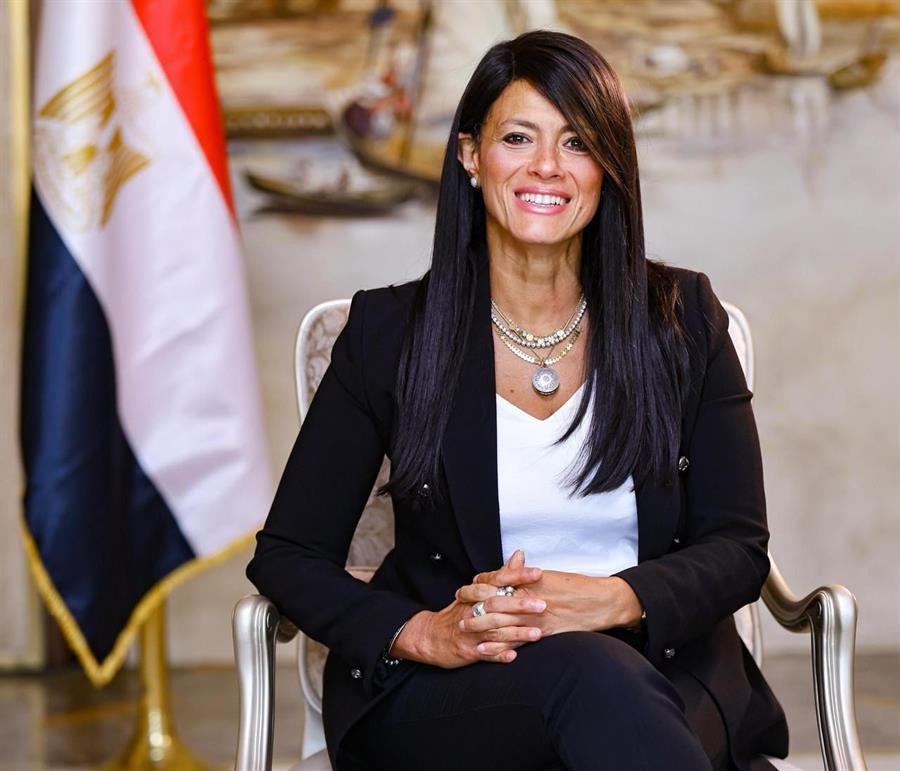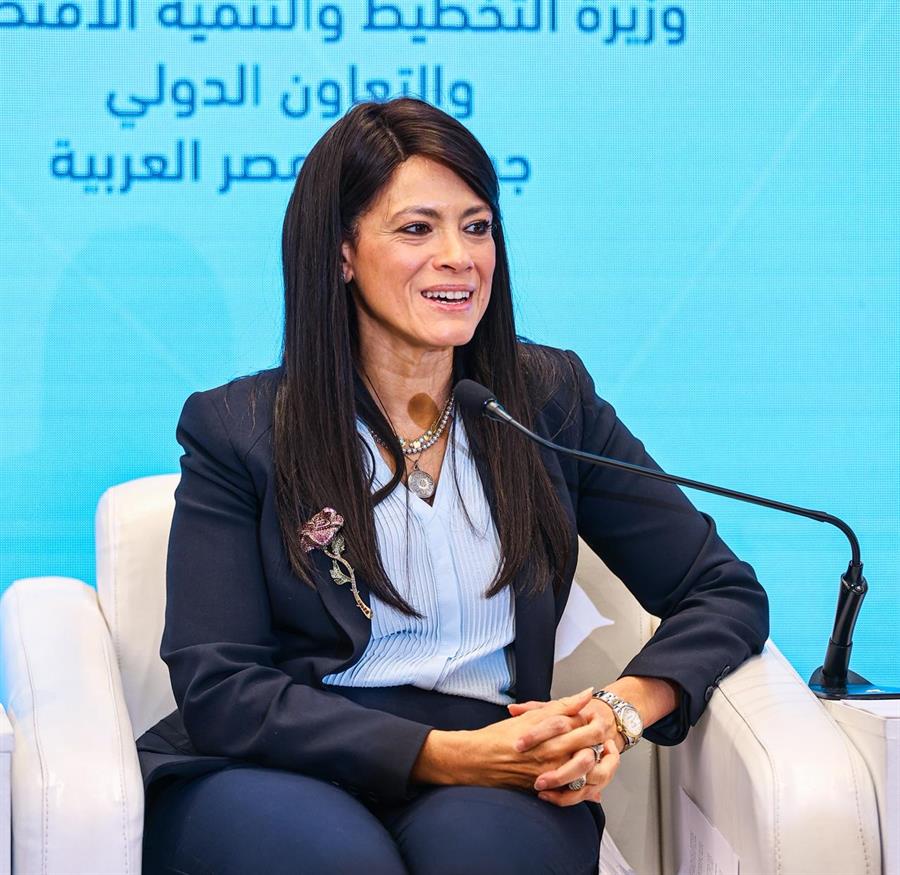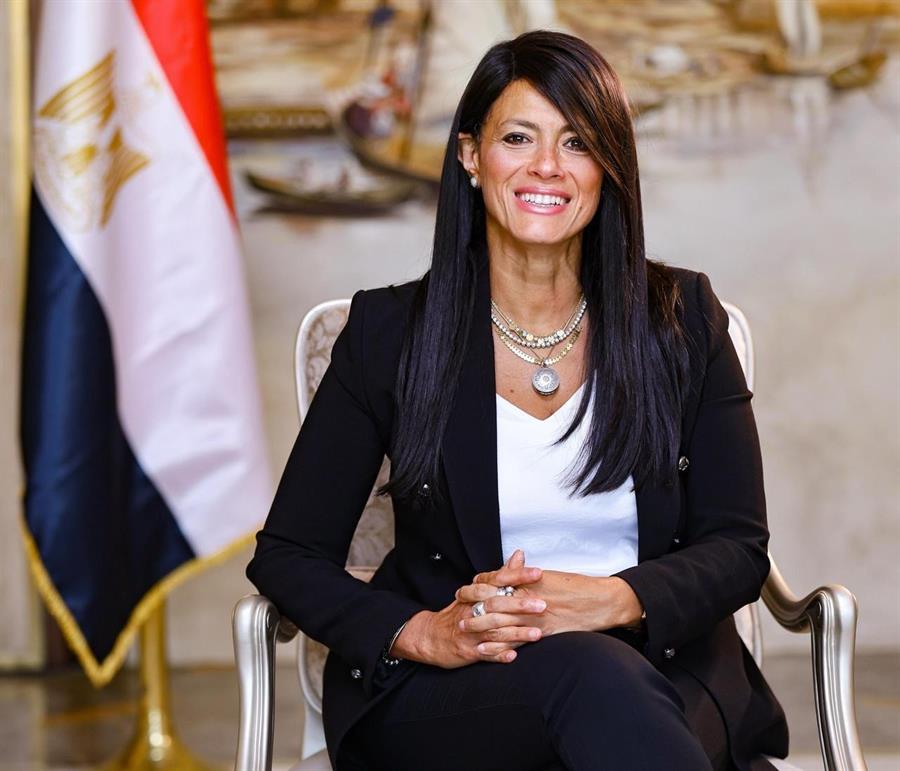Minister of Planning highlights main pillars of Egypt’s Vision 2030 in London

21 January 2020
Egypt has established the largest solar power plant in the world in the Benban region In Aswan governorate, as well as projects of developing the Suez Canal hub, new industrial zones, and expanded the construction of new cities, including the establishment of the new administrative capital,” El Said noted.
These sectors include manufacturing, wholesale and retail trade, tourism, construction, real estate activities and facilities, telecommunications and information technology, extraction activity, and agriculture,” El Said explained.H.E. Dr. Hala El Said, Minister of Planning and Economic Development, delivered a speech on Tuesday during a symposium entitled: “Egypt as a hub and portal for trade and investment in Africa”, organized by the Egyptian-British Business Council on the sidelines of the activities of the UK-Africa Investment Summit 2020 the British capital, London.Minister of Planning highlighted during the speech the close relationship between the Egyptian government and the Egyptian British Business Association, the Egyptian British Business Council and the Egyptian British Chamber of Commerce.She further mentioned the economic, social and political challenges that faced the Egyptian economy since 2011, up to the stage of stability and the start of the process of economic and social reform in Egypt, explaining that success has already been achieved by shifting to a more organized and competitive market.El Said added that Egypt managed to launch a national strategy to achieve sustainable development in February 2016 represented in the National Development Agenda Egypt’s Vision 2030, which was developed according to a participatory approach that brings the government with the private sector and civil society.She explained the efforts of the Egyptian government to start implementing a national program for economic and social reform as of November 2016, in addition to undertaking a number of legislative and institutional reforms by issuing a package of laws and legislation, including the new investment law, the industrial licensing law, and others.She also asserted that the Egyptian government is implementing several projects to prepare the infrastructure and improve its quality, to encourage investors and improve the quality of life for citizens, which included the national road network projects, and energy sector projects, especially new and renewable energy.El Said pointed out that the Egyptian state encourages many small and medium enterprises, adding that the state also seeks to diversify the sources of funding by creating mechanisms for effective partnership between the government, the private sector and civil society.In the same context, El Said referred to the establishment of The Sovereign Fund of Egypt (TSFE) as one of the effective partnership mechanisms between the public and private sectors, explaining that it is intended to increase the issued capital of the fund from EGP 200 billion to exceed EGP one trillion.In the context of seeking to create a business environment, El Said indicated that the state seeks to implement a comprehensive plan for reform and governance of the administrative apparatus through adopting a serious approach to reach a digital society and encouraging the use of electronic payment methods.The Minister of Planning also discussed the positive results on reform efforts made in recent years, including achieving an upward growth rate of 5.6% in the fiscal year 18/2019, as well as the unemployment rate falling to about 7.8% in the first quarter of 2019/2020 compared to 13.3% in 13/2014.El Said affirmed the state’s keenness to sustain economic growth achieved by focusing on a number of promising sectors, and implementing an action plan for structural reforms in number of sectors, explaining that these sectors also open the way for private sector participation.She also noted that Egypt participated in the ongoing efforts to implement a number of infrastructure projects to achieve regional integration and connectivity on the continental level, including the Cairo-Cape Town Highway Construction Project, which aims to enhance intra-African trade, and develop trade exchange between Egypt and African countries.The UK-Africa Investment Summit 2020 in London witnessed the participation of more than 350 speakers during more than 30 sessions focused on the countries of Egypt, Algeria, Morocco, Ethiopia, Nigeria and South Africa. The summit brings together African political leaders and businessmen with the UK government, investors and British international financial institutions.









